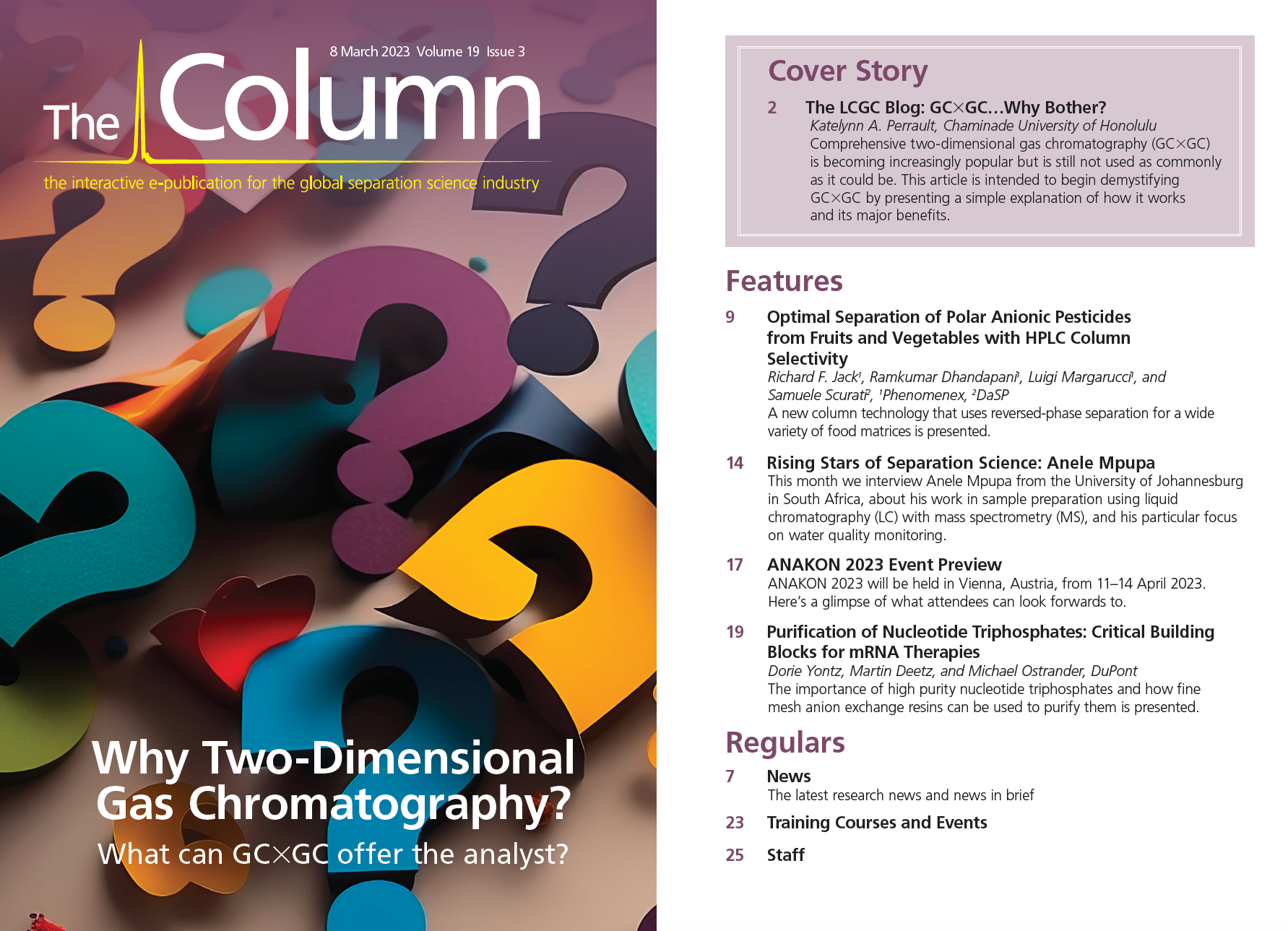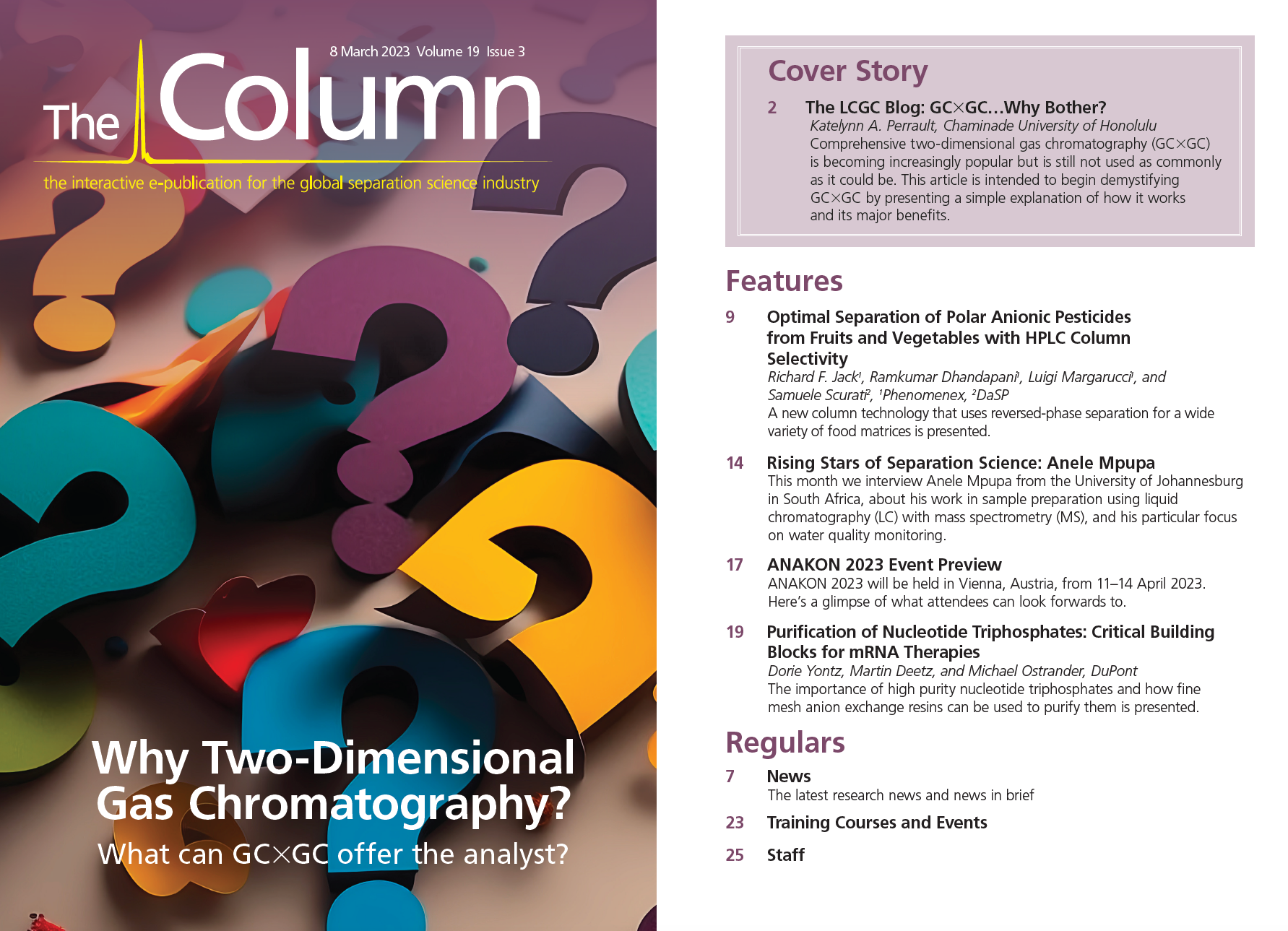ANAKON 2023 Event Preview
ANAKON 2023 will be held in Vienna, Austria, from 11–14 April 2023. Here’s a glimpse of what attendees can look forwards to.
After a hiatus of four years due to the COVID-19 pandemic, the ANAKON conference series is back in 2023! The ANAKON conferences are the flagship events of the German, Swiss, and Austrian analytical chemistry communities and are jointly organized every other year by the Fachgruppe Analytische Chemie of the German Chemical Society (GDCh), the Division Analytical Sciences of the Swiss Chemical Society, and the Austrian Society of Analytical Chemistry (ASAC) within the Austrian Chemical Society (GÖCh). ANAKON 2023 will be organized in Vienna, Austria, from 11–14 April 2023 by the Conference Chairs Martina Marchetti-Deschmann, Erwin Rosenberg, and Victor U. Weiss at TU Wien. The conference venue is located right in the centre of Vienna, next to many of the city’s landmark historical sights. Spacious and well‑equipped lecture theatres and ample space for a company exhibition and poster displays guarantee vivid interaction of the participants during breaks and social events.
ANAKON 2023 is a conference open to all fields of analytical chemistry. It is intended to showcase new developments in instrumentation and analytical methodology, as well as important novel applications. A great variety of topics will be addressed at this conference, including—but not limited to—separation sciences, mass spectrometry (including ion mobility separation), miniaturization, microfluidics, imaging and lab‑on‑a‑chip technologies, sample preparation, sensors, surface analysis, spectroscopy from the macro- to the nanoscale, and hyphenated techniques for more comprehensive analysis. The application of the above‑mentioned methods to the fields of bio- and clinical analysis, environmental analysis, and food analysis, and the application of analytical techniques in the determination of micro- and nanoplastics or in the field of cultural heritage science will be highlighted. In addition, ANAKON 2023 will also host the Austrian MassSpec Forum. Besides fundamental studies, many presentations at this embedded event will cover the omics field, showing the importance of combining separation techniques with mass spectrometry to dig deep into very complex samples.
The scientific programme will boast plenary as well as keynote lectures in which the state-of-the-art and innovative applications of analytical techniques will be presented by prominent speakers. Each keynote lecture opens a session in which contributed lectures will present further facets of the topic addressed by the headline speaker. The scientific programme of the conference will be entirely in English.
A particular highlight of the conference programme will be the Pregl‑Award Session, during which the Fritz-Pregl Medal will be awarded; this is one of the most prestigious awards presented by the Austrian Society of Analytical Chemistry. This Pregl Session will also be organized to honour the 80th birthday of Wolfgang Lindner (University of Vienna)—an earlier recipient of the Fritz Pregl Medal. In addition to the designated Pregl Medal awardee of 2023, several other earlier recipients of the Pregl Medal will give keynote presentations at this session.
Selected presenters of poster contributions will have the chance to participate in the “science slam” in which they can present their poster in the form of a flash presentation. The best presentations will be awarded with poster prizes.
The scientific programme will be complemented by a delightful social programme throughout the conference and by a company exhibition that is located within the same space as the poster sessions and the coffee breaks.

Distinguishing Alcohol- from Non-Alcohol-Associated Liver Cirrhosis with LC-MS
May 7th 2025A pilot study investigating whether nicotinamide adenine dinucleotide kinase (NADK) expression is selectively diminished in alcohol-associated liver cirrhosis (AC), as well as evaluating its potential as a biomarker for this condition, measured AC and non-AC (NAC). Nicotinamide adenine dinucleotide (NAD+) and nicotinamide adenine dinucleotide phosphate (NADP+) levels in human liver samples were measured using liquid chromatography-mass spectrometry (LC-MS).

.png&w=3840&q=75)

.png&w=3840&q=75)



.png&w=3840&q=75)



.png&w=3840&q=75)










